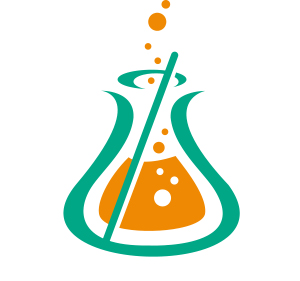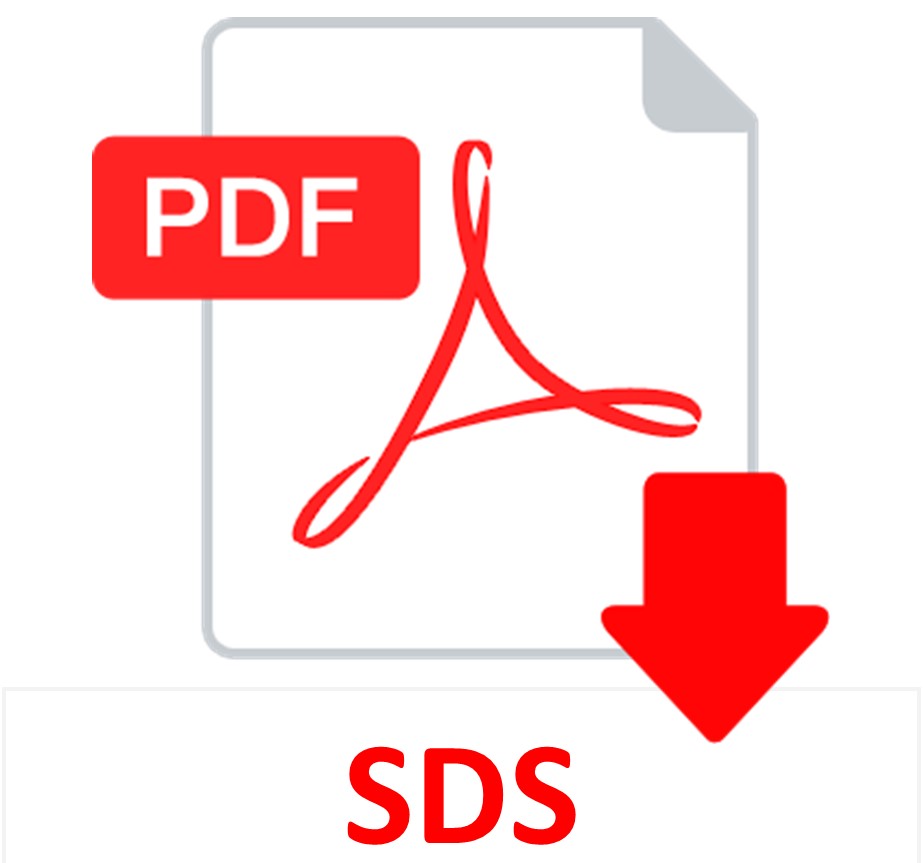Sudan III Stain, Saturated Alcoholic
(use: Fat/lipid in frozen sections and fecal fat levels.)
Tech Memo 1: Sudan III Stain, Saturated Alcoholic for Frozen Sections
SOLUTION:
| 500 ml | |
| Sudan III Stain, Saturated Alcoholic | Part 1390A |
Additionally Needed:
| Alcohol, Ethyl Denatured, 70% | Part 10844 |
| Hematoxylin Stain, Mayer Modified | Part 1202 |
| Lithium Carbonate, Saturated Aqueous OR Scott Tap Water Substitute |
Part 12215 OR Part 1380 |
| Mount-Quick Aqueous Mounting Medium | Part 6271A |
For storage requirements and expiration date refer to individual bottle labels.
APPLICATION:
Newcomer Supply Sudan III Stain, Saturated Alcoholic is used for identification of fat/lipid in frozen tissue sections. Sudan dyes are a group of fat/lipid soluble solvent dyes, also known as lysochromes. These solvent dyes readily stain fat/lipid due to the fact that the dyes are more soluble in lipid than in the solvents from which they are applied.
METHOD:
Fixation: Fresh tissue or formalin fixed unprocessed tissue
- See Procedure Note #1.
Technique: Frozen tissue sections cut at 8 microns on adhesive slides
Solutions: All solutions are manufactured by Newcomer Supply, Inc.
All Newcomer Supply stain procedures are designed to be used with Coplin jars filled to 40 ml following the provided staining procedure.
STAINING PROCEDURE:
- Fix frozen section slides in Formalin 10%, Phosphate Buffered for 1 minute.
- See Procedure Note #2.
- Rinse sections carefully in two changes of distilled water.
- Rinse in Alcohol, Ethyl Denatured, 70% (Part 10844).
- Stain in Sudan III Stain, Saturated Alcoholic for 10 minutes.
- Keep tightly capped to avoid evaporation.
- Differentiate in Alcohol, Ethyl Denatured, 70%.
- Wash thoroughly in distilled water.
- Counterstain with Hematoxylin Stain, Mayer Modified (Part 1202) for 2-3 minutes.
- Wash gently in several changes of tap water.
- Blue in Lithium Carbonate, Saturated Aqueous (Part 12215) or Scott Tap Water Substitute (Part 1380) for 10 dips.
- The use of a bluing agent is optional.
- Wash gently in several changes of tap water.
- Blot excess water from slide; coverslip with Mount-Quick Aqueous Mounting Medium.
- See Procedure Note #3.
RESULTS:
| Fat | Orange/red |
| Nuclei | Blue |
PROCEDURE NOTES:
- To freeze formalin fixed unprocessed tissue post:
- Place specimen in tissue cassette, wash in running water for 5 minutes.
- Remove tissue from cassette; blot well, removing all excess water from tissue.
- Freeze tissue according to laboratory protocol.
- Frozen formalin fixed tissue does not require additional formalin fixation.
- Use minimal pressure when applying coverslip or fat/lipid staining may be disturbed. To remove trapped air bubbles or to recoverslip;
- Soak slide in warm water until coverslip is easily removed.
- Blot excess water from slide.
- Remount with new coverslip and Mount-Quick Aqueous Mounting Medium.
REFERENCES:
- Culling, C. F. A. Handbook of Histopathological and Histochemical Techniques: (including Museum Techniques). 3rd ed. London: Butterworth, 1974. 359-362.
- Kiernan, J. A. Histological and Histochemical Methods: Theory and Practice. 3rd ed. London, Ontario: Arnold, 2003. 251-254.
- Modifications developed by Newcomer Supply Laboratory.
Tech Memo 2: Sudan III, Saturated Alcoholic For Fecal Fat
SOLUTION:
| 500 ml | |
| Sudan III Stain, Saturated Alcoholic | Part 1390A |
Additionally Needed:
| Alcohol, Ethyl Denatured, 95% | Part 10842 |
| Acetic Acid, Glacial, ACS | Part 10010 |
For storage requirements and expiration date refer to individual bottle labels.
APPLICATION:
Newcomer Supply Sudan III Stain, Saturated Alcoholic is used for microscopic detection of increased fecal fat levels due to malabsorption. This screening procedure for malabsorption and steatorrhea consists of two parts; the neutral fat stain and the split fat stain for fatty acids.
METHOD:
Fixation: Fresh/unpreserved fecal material
- See Procedure Note #1.
Solutions: All solutions are manufactured by Newcomer Supply, Inc.
STAINING PROCEDURE: METHOD FOR NEUTRAL FATS
- Examine within accepted time, a fresh fecal sample collected, stored and prepared per laboratory protocol.
- See Procedure Note #2.
- Place small aliquot of prepared fecal sample on a clean glass slide; approximately 5mm in diameter.
- Mix two drops of Alcohol, Ethyl Denatured, 95% (Part 10842) with the fecal sample on the slide.
- Add two drops of Sudan III Stain, Saturated Alcoholic to the fecal suspension on the slide; mix well.
- Coverslip and examine microscopically.
RESULTS:
| Neutral fats | Red/orange refractile globules |
STAINING PROCEDURE: SPLIT FAT STAIN FOR FATTY ACIDS
- Prepare in advance 36% Acetic Acid, Glacial; mix well.
- Acetic Acid Glacial, ACS (Part 10010) 9 ml
- Distilled Water 16 ml
- Store at room temperature for up to 1 year.
- Examine within accepted time frame, a fresh fecal sample collected, stored and prepared per laboratory protocol.
- See Procedure Note #2.
- Place small aliquot of prepared fecal sample on a clean glass slide; approximately 5mm in diameter.
- Mix two drops of Alcohol, Ethyl Denatured, 95% (Part 10842) with the fecal sample on the slide.
- Add two drops of Sudan III Stain, Saturated Alcoholic to the fecal suspension on the slide; mix well.
- Add two drops of 36% Acetic Acid Glacial; mix well.
- Place on preheated hot plate (calibrated to 60°C or slightly higher) until bubbles appear. Or hand hold slide over preheated hot plate until bubbles appear; quickly remove slide and reheat two additional times.
- See Procedure Note #3.
- Immediately coverslip and examine microscopically while warm.
RESULTS:
| Fatty acids | Red/orange refractile globules |
PROCEDURE NOTES:
- For optimum results fresh, unpreserved fecal material is required.
- Refer to laboratory protocols and guidelines for proper collection methods, specimen storage requirements and time frame that satisfactory testing results can be obtained.
- Sudan dyes dissolve in lipids at temperatures above the melting point of the lipid or when lipid is in liquid phase. The melting point of lipids in which fatty acid chains are saturated melt above 60°C. Most unsaturated lipids are liquid at room temperature (20°-22°C).
REFERENCES:
- Bauer, John D. Clinical Laboratory Methods. 9th ed. St. Louis: Mosby, 1982. 793-794.
- Fine, Kenneth D., and Frederick Ogunji. “A New Method of Quantitative Fecal Fat Microscopy and Its Correlation With Chemically Measured Fecal Fat Output.” American Journal of Clinical Pathology 113.4 (2000): 528-534.
- Fischbach, Frances, and Marshall Dunning. A Manual of Laboratory and Diagnostic Tests. 8th ed. Lippincott Williams & Wilkins, 2008. 303-304.
- Khouri, M.R., G. Huang, and Y.F. Shiau. “Sudan Stain of Fecal Fat: New Insight Into an Old Test.” Gastroenterology 96.2 (1989): 421-427.
- Kiernan, J. A. Histological and Histochemical Methods: Theory and Practice. 3rd ed. London, Ontario: Arnold, 2003. 251-252, 254.
- Modifications developed by Newcomer Supply Laboratory.



